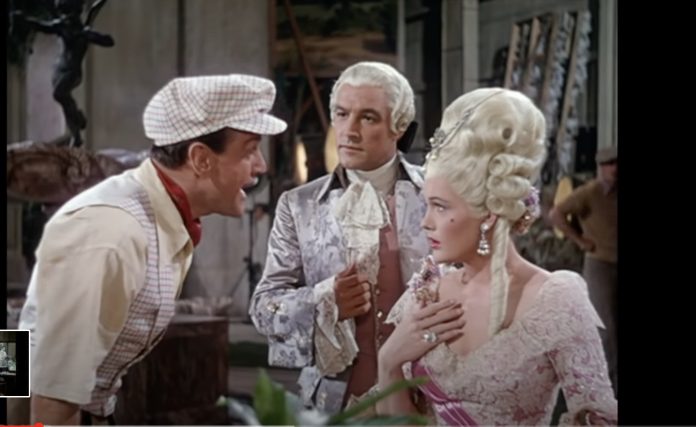
Imagine you have been cast in the famous movie shown in the clip above (https://www.youtube.com/watch?v=OTFCctdiS04) in the role of the director. Listening to the “actor’s” voice, what effect does it have? Unpleasant sounding voices will have a similar effect not only on you but on clients also.
If a voice sounds: monotoned, shrill, tense, unclear, phony, forced, boring, tired, hurried, pushed, it will be annoying for the listener. Sounds trigger emotional memories. When the sound is in any way strained, so are the emotions of the listener.
How do you respond to these sounds: fingernails on a blackboard, someone screaming, a knife scraping glass? For many, an individual’s voice falls into this category. The category of Irritating Voice Syndrome.
Voice Confrontation
Most people will even grimace when hearing a recording of their own voice. This is so common there’s even a name for it: voice confrontation. But perhaps people are unduly hard on themselves when assessing their own ‘voice,’ unfortunately, this critical perception is also projected onto the voices of others, both unconsciously and consciously.
Longfellow famously wrote: “The human voice is the organ of the soul”. But if you sound like a screeching actor or variations on a theme, how might this affect you and your company business-wise? It is an undisputed fact that businesses lose business because of poor presentation skills. If we understand that “93 percent of the way others perceive us is determined by body language and voice,” (SPIES 2006) then the reason for doing something about it becomes not just clear but imperative. Irritating voices affect a company’s bottom line. If your customer service rep or your sales and marketing executive sound like the actor in the above film clip, (or shared some of her technical difficulties with Mike’s) or sound irritating in other ways, what will that say about your business?
The Positive Impact of Voice
Now having identified voice qualities that can have negative effects let’s flip to the positive. Here are examples of some actors who have a pleasing sound as well as a sound that varies and adapts when needed. Anthony Hopkins, Helen Mirren, Gregory Peck, Vanessa Redgrave, James Earl Jones, Meryl Streep, Tom Hiddleston, and many more. First off: you can hear what they say. They are mainly at ease in themselves. Their posture fairly well connected. Their breathing not unduly forced. Their articulation light. Their sound is connected and flows effortlessly. The effect: the listener is captivated by the sound and wants to listen. Yes, all of these actors have been trained for the stage and know how to fill a large theater, even with intimate dialogue if required. Business Professionals don’t need to follow in these well-trained footsteps but they will certainly benefit from knowing how to connect to their own natural sound when speaking. The key is understanding vocal habits that block, armor, and interfere with voice. In fact, one does not ‘do’ sound (or project sound by tightening, pushing and half-shouting) but by undoing the unconscious tensions that have been accidentally acquired therefore allowing natural resonance/overtones to fill the space. Most of us have some vocal tensions, in fact, they are inherent in various environments we happen to have been reared in.
A story that illustrates vocal tension: X was in her 70’s. Can’t quite remember how she found my studio but she came along with her husband and two family members for a consult. They spoke on her behalf and she nodded in response. X hadn’t been able to speak for several months. She was able to force out barely audible whispered sounds at times but even that was a strain. When attempting to whisper X tightened her whole body, locked her larynx rigidly, her eyes became larger, breathing practically non-existent. It was obvious that her vocal problem was not just confined to her larynx. We worked on undoing some of this tension by addressing aspects of her posture and then we used a delicate movement of the head/ neck (finding occipital balance) to help undo the tightness. After a while I asked X if she observed she was less tense, “Oh yes I’m much ….” That was as far as she got before she placed her hand to her mouth while receiving laughter and applause from the family. I mention this to illustrate that ‘we undo into connection.’ It’s not a doing it’s an undoing. We are all connected by nature (functionality). It is the way we disconnect that causes problems.
If the jaw and tongue are tight it’s no use just exercising the muscles of the jaw and tongue. This will actually make the problem worse. One would be merely exercising over the existing tensions (like the comedic Elocution Teacher does in the above film clip). Learning to articulate lightly without undue muscular tension will open up new pathways for freer speech. Likewise, muddy unclear sounds can be undone by addressing: restricted breathing patterns, hearing the range of various vowel sounds more accurately in ourselves, and by undoing unnecessary vocal tension habits – the major root cause of vocal strain. And it is not a lengthy process. Understanding the foundations of healthy vocal use, and a willingness to do a little homework will invite change. If an individual has just minor vocal quirks then a group online class lasting from an hour and a half to two hours will result in fundamental and observable vocal changes.
Conclusion
The business world is morphing more and more into online communication. Zoom meetings are exploding. This relatively new business format requires an understanding not only of using our voices well but of preserving our vocal shelf life. Occupational vocal health is fast becoming the focus of professionals who depend on their voices to make a living. A meta-analysis of 6 papers on voice disorders in occupations with vocal load showed that more than 82 percent of the 2347 subjects had voice problems at some time during their career (SJPH Zdr Varst. 2018).
Individual professionals and employers neglect vocal training and vocal health at their peril.



